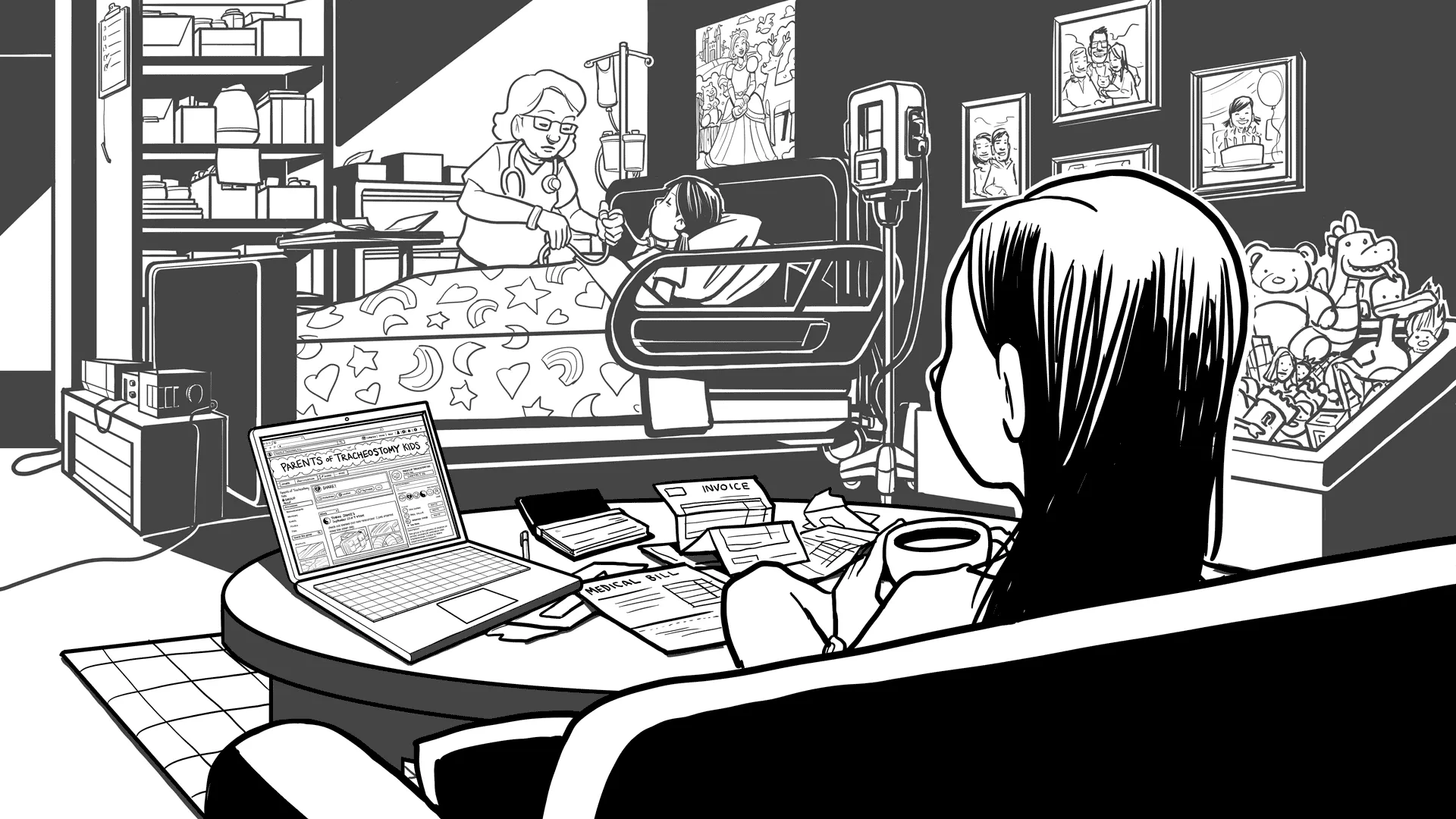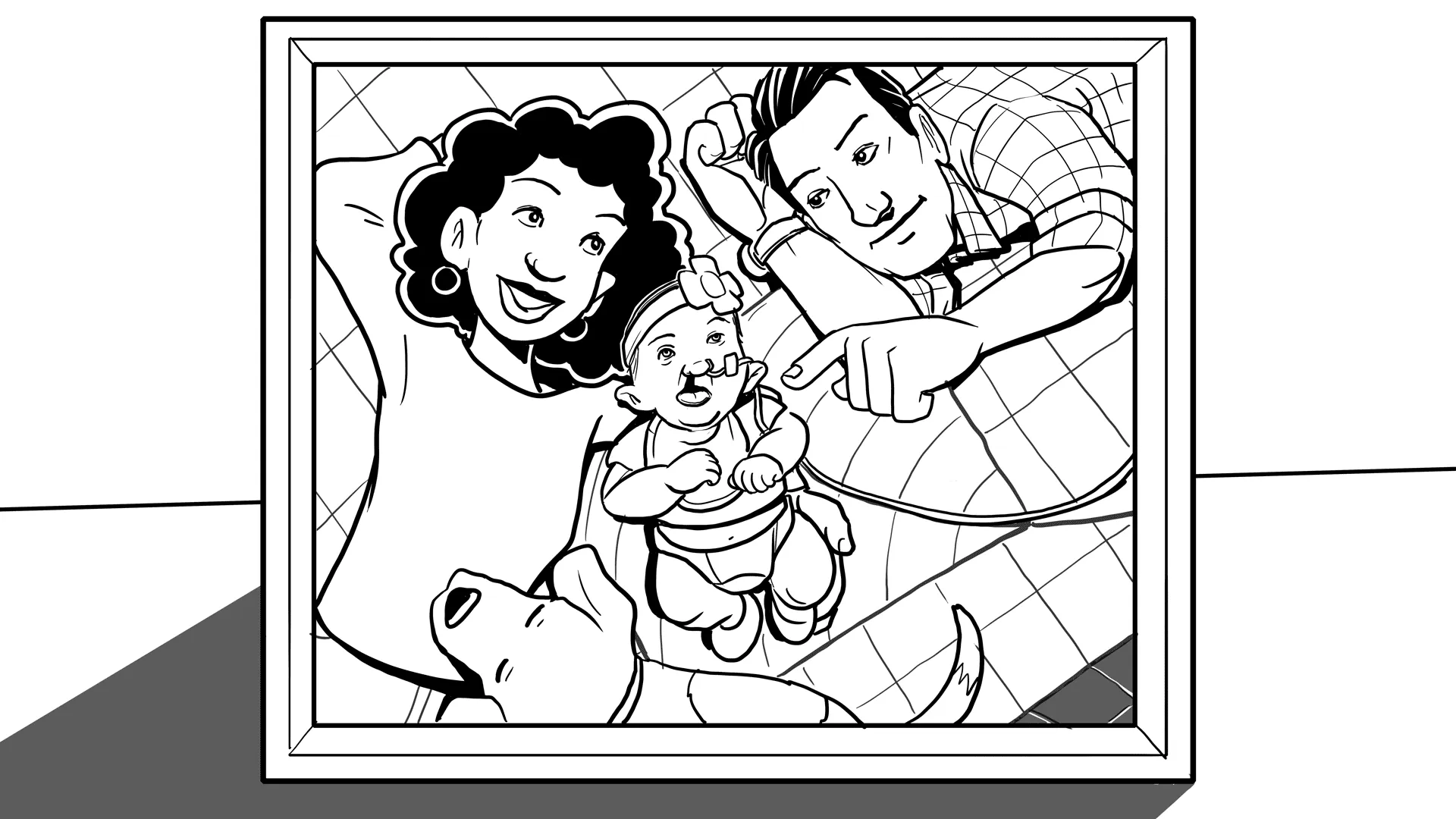Preparing for the end of life
Nothing can fully prepare a parent for the death of a child. Talking about fears, goals, and beliefs may help you and your family during this difficult time.
You can listen to two different family experiences below.

Catherine: I know that one day, a virus might overwhelm her body’s ability to protect her. Or her heart will get worse, and she will start to struggle. We’ll do whatever we can to give her the best life possible until that point, until she can no longer stay at home with us.
My husband Ken and I agree that, when we get to that point, we should stop using the trach and vent as tools to keep her alive. I can’t imagine how hard it will be to let my Vivian go, but I’ve realized that saving a life is not the same thing as saving a child. I don’t want to just keep Vivian’s body alive, if her spirit is already gone. Removing the vent then would not be giving up; it would be giving her peace, rest and comfort.
Moms like me are sensitive about the term “quality of life” — because it means something different to us. I think Vivian has a good quality of life to the extent she can. Is it good compared to a child without medical problems? Of course not, but the vent has allowed us to love her longer than we could have otherwise.

Matt: I had no idea how to plan for our time with our daughter. When you think of having kids, you start planning where they will go to school, when they’ll learn to ride a bike, if they will want a dog. You never think they won’t live to be old enough to do any of those things. We didn’t know if Ashley was going to be with us for minutes or hours or a week after she was born. I’d never seen anyone die before, not in real life, just in movies and TV. I couldn’t imagine what it would be like.
Morgan: The hospice people were great. Their nurses and social worker and chaplain—they brought up really difficult discussions that we were probably too afraid to bring up ourselves. They described how it would be when Ashley died. What she would look like. What we could do to help her breathing be more comfortable. Who could be here. When our pastor should come. What would happen after.
Matt: They had medicines in case Ashley became uncomfortable. They knew that our families would want to be here too, our parents, my sisters. The hospice nurses talked to them about all this too, so we didn’t have to. It was a huge help.
Morgan: When Ashley’s breathing got harder, I was scared. I asked the hospice to try the oxygen to see if it would help. But it really didn’t, and it just made it harder to hold her and kiss her, so we stopped and took it off again. The medicines the hospice gave her did help. What seemed to make Ashley most comfortable was to snuggle in bed with me and Matt and our dog. My mom would sit in the corner and sing or my sister would read aloud. It was the hardest thing we have ever done, but we were not alone. So many people helped us.